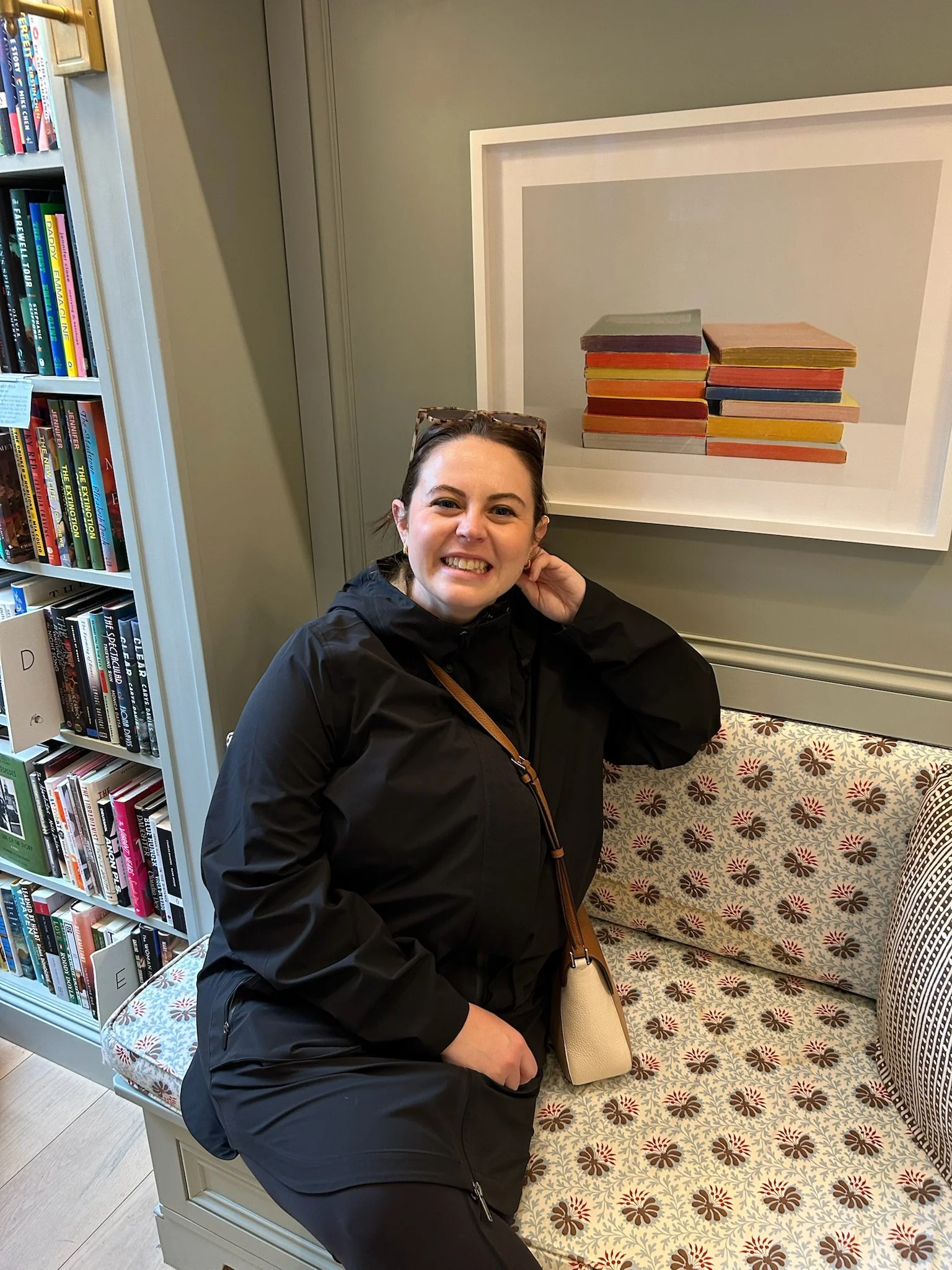AUBREY’S RECENT READS - 2023
Aubrey Richardson LPC sitting in a bookstore to represent her love of reading self-help books
In 2022, I read 72 books and this year I am challenging myself to read 100 books. I love to read, and have a voracious appetite for stories. I’m sharing my favorite recent reads related to mental health below:
The Myth of Normal: Trauma, Illness, and Healing in a Toxic Culture by Gabor Mate
Amazing 10/10. I appreciate Gabor’s take on the influences of one’s environment and ‘biology’ on mental illnesses, and his unique perspective on healing. Some of his writings absolutely blew me away including “What must I believe about myself to deny my own needs in this way?” and “better to believe ‘it’s my fault; I’m bad,’ which lets you believe there’s the chance that ‘if I work hard and be good, I will be lovable.’”.
Accessing the Healing Power of the Vagus Nerve: Self-Help Exercises for Anxiety, Depression, Trauma, and Austin by Stanley D. Rosenberg
7/10. I appreciate some of the exercises that Rosenberg mentions in the back of the book, but the book can be difficult to read at times when he tries to explain concepts verbally that should be taught visually. However, this is a good starting point for anyone wanting to learn more about the vagus nerve. I am glad I didn’t pay for this book by renting it from the library.
Crying in H Mart by Michelle Zauner
10/10. I laughed, I cried, and I wished the book would never end. Michelle Zauner writes about her complicated relationship with her mother through food, and through their Asian heritage. Zauner beautifully describes illness, death, and grieving, and interweaves how her unique Asian American heritage impacts her life. I would gift this book to a friend, and recommend to everyone.
How to Keep House While Drowning: A Gentle Approach to Cleaning and Organizing by K.C. Davis
9/10 for content. Davis has unique and interesting perspectives on focusing more on functionality over perfectionism (which should sound familiar to anyone who knows me), and shifting language from chores to ‘care tasks’. Her question that she asks in the book “what does future you need to function tomorrow?” shifts ‘shoulds’ into gentle choices. Additionally her statement “This list is here to serve me; I do not serve this list.” has changed my own attitude about my own weekly care task list.
Ready to add to your bookshelf? Shop HERE. As an BOOKSHOP.ORG affiliate, I do earn a small commission.
